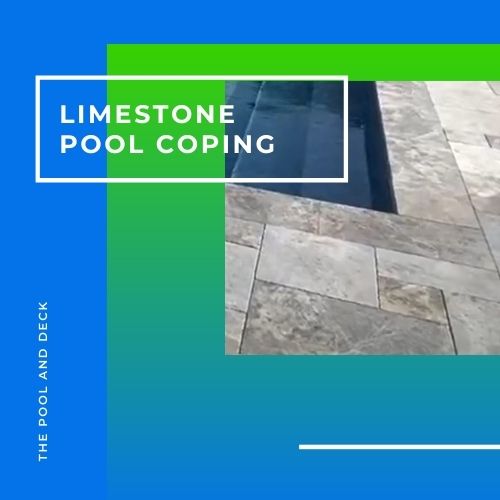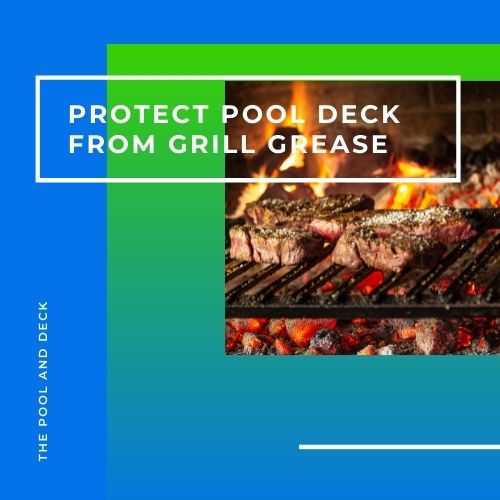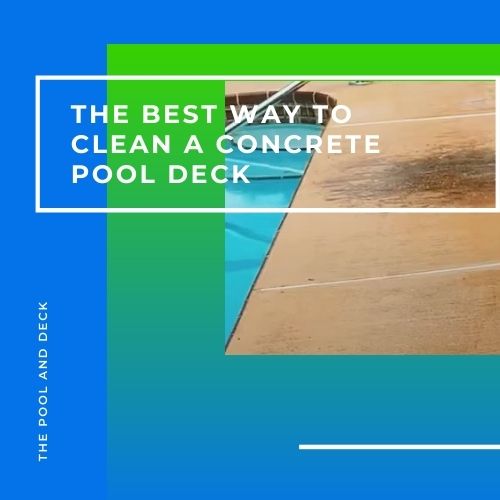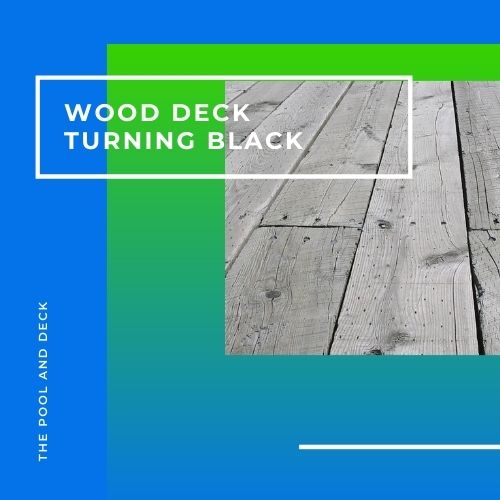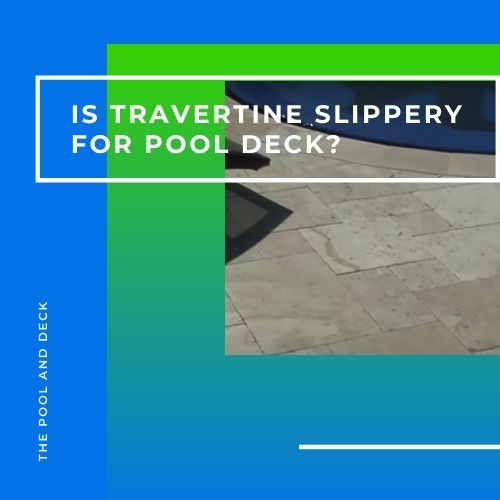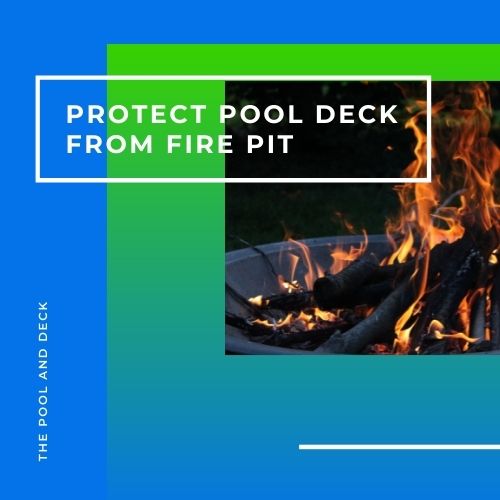How To Pressure Wash Granite Paving (Absolutely The Best Way!)
thepoolanddeck.com is a participant in the Amazon Services LLC Associates Program, an affiliate advertising program designed to provide a means for sites to earn advertising fees by advertising and linking to Amazon.com . The website is also an affiliate of a few other brands. The affiliate links never increase your purchase price. We do appreciate your support. Thank you very much!
Table of Contents
Can You Pressure Wash Granite Paving?
Do you have granite paving on your patio, pool surrounds or the driveway? Fantastic! Granite is a great choice. Granite paving is expensive but far superior when it comes to hardness & durability. However, all paving, even granite paving, gets dirty and needs to be cleaned. But, can you pressure wash granite paving?
Granite paving can withstand a pressure wash better than most other natural stone pavers. Granite scores around 6.5 on the Mohs scale of hardness. Most other pavers such as limestone, travertine and marble score only around 3.0.
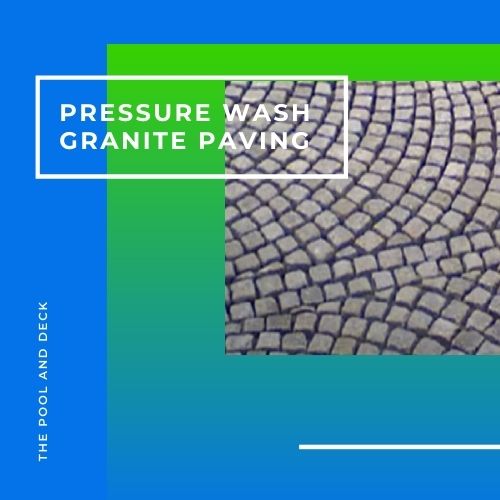
You still need to exercise caution when you pressure wash granite paving. Start off pressure washing of granite pavers with the washer setting at the lowest level.
Use a rotary surface cleaner attachment for better control. If spraying directly from the wand use the fan nozzle and keep the tip 2’ above the granite paving.
Very high pressure can damage even granite paving as it abrades the protective natural patina of the stone as well as the sealer coat. The pores open up allowing water & chemicals to permeate into the granite pavers.
Granite Paver Joint Sand
Granite pavers, like all pavers, have sand between the joints to stabilize and hold the pavers. A hard pressure wash will loosen the sand or even wash it away. The pavers will lose their stability.
Rainwater or snow melt can also seep through the loose sand and cause the base to settle unevenly. Your granite paving will become wobbly, uneven and may even sink in spots. You do not want this to happen as repairs are both time consuming and costly.
Loose, wet sand in the granite paver can encourage weeds and grass to sprout. You are also likely to see growth of microbes such as mold, mildew and algae in the paver joints.
How Do You Clean Granite Paving?
You may not need to reach for the pressure washer, everytime the granite paving looks dirty. There are three actions that you need to take before you resort to pressure washing the granite pavers.
Once you complete the three actions you can decide if a pressure wash is really necessary. Remember, you do not want to pressure wash granite pavers too often. Too much pressure washing will damage the granite pavers, the joint sand and the sealer.
Complete these 3 actions before you power wash your granite paving.
ACTION 1:
Sweep the granite patio, pool deck or driveway while it is still dry. Use a soft broom or a soft bristled synthetic brush. Pick out any large or sharp objects by hand. Sweeping will get rid of most of the dust & debris before it gets wet & sticky.
ACTION 2:
Rinse the pavers with clean water from a garden hose. Pour a pH neutral soap solution, such as Dawn, and spread it around. Then use a synthetic bristle brush to scrub out the dirt that is sticking.
Rinse off the soap residue and now loose grime with clean water using a garden hose.
ACTION 3:
Identify the stains that may be there on the patio. Not all stains are the same. Often a specific stain will require a specific stain remover. Do not use highly acidic stain removers such as bleach, vinegar etc. on limestone paving. They may corrode and discolor your granite paving.
To get rid of stubborn stains use Miracle Sealants Poultice Plus. It is an easy to use, fine, non-acidic absorbent powder. The bleach free formula works, when mixed with distilled water, to draw stains out from granite paving.
In case you have oil or grease stains on the granite driveway, you will need to use an oil stain remover, such as StoneTech Oil Stain Remover for Natural Stone.
If, after these three actions, granite paving looks reasonably clean & stain free, skip the pressure washing for the time being. You want to pressure wash granite paving as little as possible.
If you do decide to pressure wash your granite pavers, do not do it with plain water.
What Is the Best Cleaner to Use in a Pressure Washer?
Quite often, household products like chlorine, bleach, vinegar, baking soda or ammonia are recommended to clean pavers. They will get rid of certain stains but they may also damage or discolor the granite paver.
It is best to use pH neutral cleaners on Granite Paving.
Black Diamond’s Stone Wash lifts dirt effortlessly from natural stone without damaging the surface or diminishing the natural stone color. Stone Wash is pH neutral and biodegradable.
Alternatively you can use cleaning products that are formulated using hydrogen peroxide.
Simple Green Oxy Solve Total Outdoor Pressure Washer Cleaner lifts away tough grime, oil & grease stains and stains from mold, mildew, algae, etc. using the power of hydrogen peroxide. No harsh chemicals are included in the formulation.
What Are the Steps to Pressure Washing?
Now, if you do need to pressure wash your granite paving, do it in absolutely the best way. Follow these 3 steps:
STEP 1 (PRESSURE WASH):
Pressure wash the granite paving using a good quality, pH neutral cleaner. The process to follow is:
- Wet the pavers with clean water using a garden hose
- Prepare a solution of the pH neutral cleaner in a bucket of water (or as per directions on the packaging). Broadcast the cleaner on the paving in a small workable area. You do not want the cleaner to dry up before you start the pressure washing
- Leave the cleaner on the patio for some time. The cleaner will lift off any remaining grime
- Pressure wash at low pressure and at an angle. A rotary surface cleaner attachment is very helpful
- Pressure wash the pavers once again, this time with just clean water, to rinse off the cleaner & grime residue
NOTE: Pressure washing granite pavers can damage them, if not done correctly. Check out the next section on the correct way to pressure wash.
STEP 2 (RE-SAND):
Once the pavers have dried check the status of sand in the paver joints. You can use a putty knife to check. Is the sand level too low or is the sand very loose. If the answer is yes, then you need to re-sand.
Check out my article Why Re-Sand Pavers; How To Do It & What Is The Best Sand?
The best sand for paver joints is polymeric sand. Polymeric sand is a fine sand that is combined with additives that form a binding agent when exposed to water. Water activates the setting of the polymeric sand
Polymeric sand is great for pavers in 4 ways:
- Prevents weed growth from bottom
- Stops insects from burrowing from the top
- Keeps pavers together & prevents shifting
- Blocks water penetration
Check out Polymeric Sand for Paver Joints
STEP 3 (RESEAL):
You should reseal the granite pavers after re-sanding. If you have not re-sanded, you need to check the effectiveness of the sealer on the granite pavers. Sealers get depleted due to weathering and normal wear & tear.
Pressure washing granite pavers abrades some more of the residual sealer. Conduct a simple test to find out if the pavers need to be resealed.
Sprinkle a few drops of water on the dry granite paver. If the water beads up, then the sealer is still effective. No need to reseal. But if the water gets absorbed then you certainly need to reseal.
Impregnating Sealer
Impregnating Stone Sealers penetrate into the stone pores, solidify and block them. Water, stains or harmful chemicals can not enter the pores once the granite paver has been sealed.
Recommended Product: Miracle Sealants 511QT6 511 Impregnator Sealer.
Topical Sealer
Should you want to give the granite pavers a bit of a shine, you can follow up the impregnating sealer with a topical sealer. They form a glossy or egg-shell, protective film on the granite surface. Your granite paver will get a rich lustrous look and become stain resistant.
Recommended Product: Foundation Armor AR350 Solvent Based Acrylic Wet Look Sealer.
However, topical sealers smoothen out the texture of the granite making it slippery. If you expect the sealed area to be wet most of the time, then better add a non-slip additive to the sealer.
Recommended Product: H&C SharkGrip
Can Pressure Washing Damage Pavers?
Residential pressure washers come with a psi rating, usually between 1000 – 3000 psi. A higher psi power washer will get the job done faster but it increases the risk of damaging pavers, tiles and deck boards.
The water pressure impacting the paver or deck surface depends on the spray :
- Distance
- Spread
- Angle
To avoid damaging granite pavers you need to control the spray distance, spread & angle. Moreover, you have to keep the spray moving constantly in a slow, uniform, overlapping, circular motion. Do not spray the same area continuously for too long.
I must admit that this is easier said than done. The spray gun is well, ultimately a kind of a gun. And don’t we love playing with guns? Not surprisingly, we get trigger happy and go full blast!
The best practice is to use a rotary surface cleaner attachment at the end of the wand. This will automatically control the distance, spread and angle of the water spray.The attachment has:
- Two rotating flat jet nozzles
- Splash guard
- Adjustable height
You might want to check out Karcher Universal 11″ Pressure Washer Surface Cleaner Attachment for Electric Power Pressure Washers.

Its key features are:
- Universal Compatibility: Compatible with Karcher & most non-Karcher pressure washers
- Efficient Cleaning: Two high RPM spinning nozzles instead of one
- Multi-Surface Cleaner: Works on concrete, driveways, patios, decks, sidewalks and more
- Splash-Free Skirt: A shroud and splash-free skirt minimize overspray
- Superior Clean: Eliminates streaks as nozzles at a fixed height from the deck
Thank you very much for reading the post. I do hope you found it informative and helpful.

